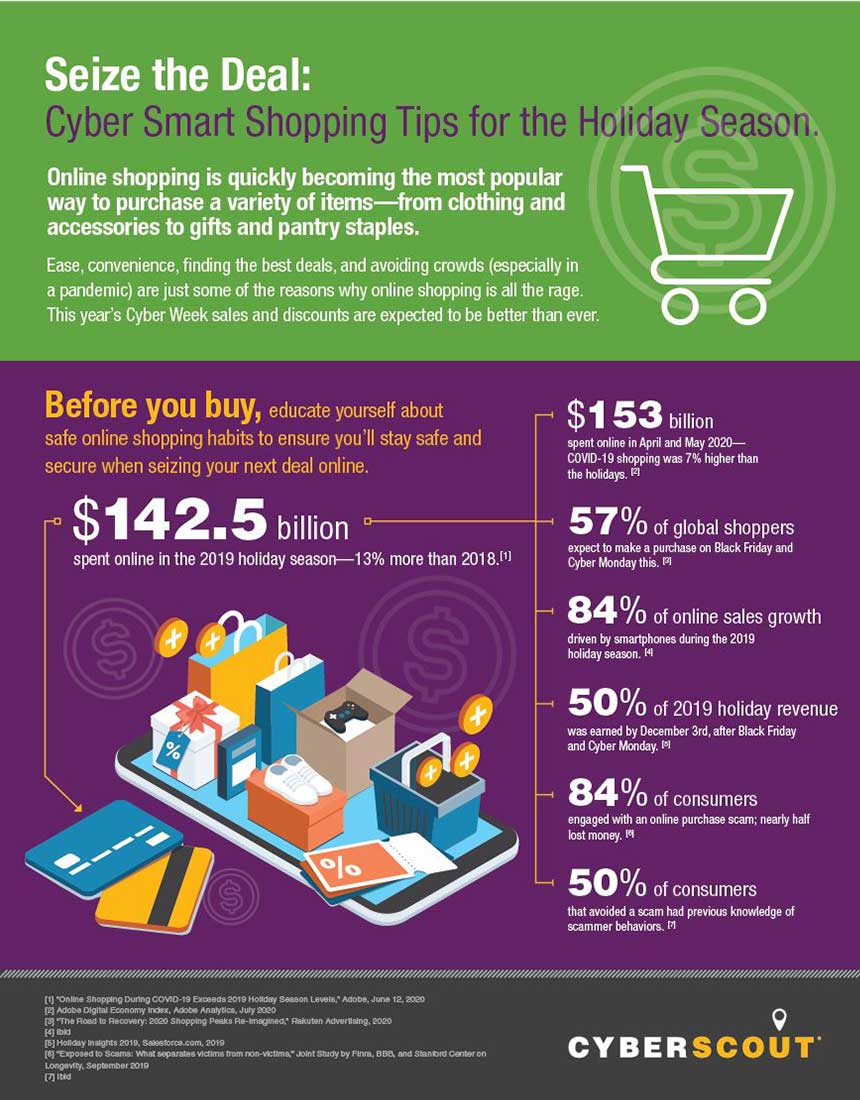Smartphones and the Internet have revolutionized the way consumers shop. Armed with a few search terms and simple clicks, we can find items, compare prices, read product reviews, order, and pay for all types of items from electronics, appliances, and tools to furniture, clothes, and groceries. Often, consumers also have the power to choose whether purchases will be picked up in store or delivered right to our doorstep. Any way you look at it, online shopping is a fast and convenient way to buy what we want and need.
Online is becoming the primary way we shop
The COVID-19 pandemic created new online buying behaviors and habits. For many, the convenience and safety of online shopping will replace in-store visits until the pandemic is behind us—and perhaps longer. In fact, one recent study found that 24% of U.S. consumers wouldn’t feel comfortable shopping in a mall for more than six months1. And a survey in the UK showed that two in five people intend to continue online shopping rather than go back to brick-and-mortar shopping. Additionally, while “65% of UK shoppers said they had made more online purchases than usual during the outbreak, nearly three quarters primarily plan to shop online during the holidays.”2
The cost of convenience
Online convenience also comes with some risk. Sometimes consumers: don’t receive exactly what they ordered; get scammed by fraudulent websites; become victims of identity theft and/or loss. Cybercriminals are opportunistic and they will be seeking to exploit the growth in online shopping this holiday season. But don’t worry, with a little preparation and vigilance, consumers can safely and securely shop online and avoid falling victim to scams.
Why are Cyber Week holiday sales targeted?
According to Adobe Analytics, Black Friday online sales reached $7.4 billion in 2019, and Cyber Monday recorded $9.4 billion3. Since cybercrime is largely motivated by money, that makes Black Friday and Cyber Monday very attractive targets for cybercriminals. And that means increased phishing attempts that try to get you to reveal personal information, account credentials, and credit card numbers. Through email, fake ads, and illegitimate websites, cybercriminals are hoping some unwitting consumers will let their guard down in the rush to secure the best deals before they’re gone.
Since consumers often spend more than usual during the holiday season, it’s easy to lose focus when an email or text message arrives under the guise of your credit card provider or bank regarding a suspicious transaction or frozen account. Without prior awareness of these scams, some consumers mistakenly click on links or share their personal information. Instead, consumers should be aware of these and other common attacks and use caution to avoid falling victim.
Snag Cyber Week deals with peace of mind
Knowledge is power. Enjoy your online shopping experience by following best practices and increase your awareness of common scams.

Diamond Credit Union has partnered with CyberScout to offer comprehensive identity management services. If you detect suspicious activity or would like to proactively protect your identity, contact us at 610-326-5490 to be connected to a CyberScout fraud expert.
LEARN MORE ABOUT CYBERSCOUT AT DIAMOND



